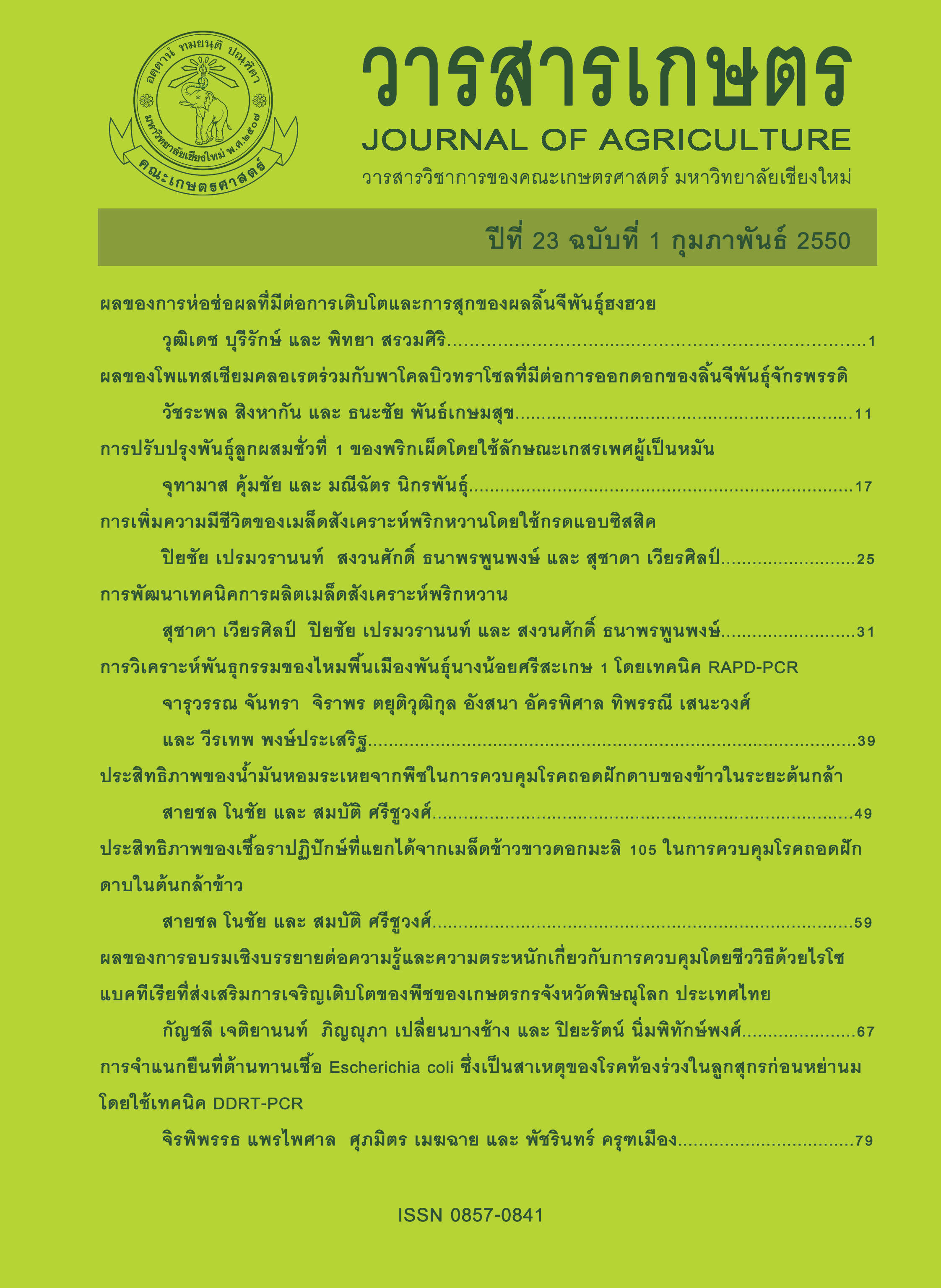การพัฒนาเทคนิคการผลิตเมล็ดสังเคราะห์พริกหวาน
Main Article Content
บทคัดย่อ
This research demonstrates the improvement of sweet pepper synthetic seed production technique by using somatic embryos from indirect somatic embryogenesis method of mature zygotic embryo explants. The seeds were cultured in developed MS liquid medium whose nutrient concentration and growth regulators were modified in order for high embryogenic frequent callus, which could be transformed into strong somatic embryos. Mature somatic embryos were encapsulated in calcium alginate gel using different concentration of sodium alginate 2, 3, 4, 5 and 6% w/v and calcium chloride 25, 50, 75 and 100 mM. After having synthetic seeds from this process, the synthetic seeds dehydration were pursued until they lost 80% of their moisture contents. The experimental results suggested that ; encapsulation with 3% sodium alginate and 75 mM calcium chloride was most appropriate in dry sweet pepper synthetic seed production. The survival reached 87% and calcium alginate gel in seed encapsulation was stable bead rigidity and shape after dehydration until losing 80% of their moisture contents. Moreover, synthetic seeds will have high flexibility and germinate within 3 days.
Article Details
เอกสารอ้างอิง
Buyukalaca, S. and F. Mavituna. 1996. Somatic embryogenesis and plant regeneration of pepper in liquid media. Plant Cell, Tissue and Organ Culture 46: 227-235.
Fourre, J.L., P. Berger, L. Niquet and P. Andre. 1997. Somatic embryogenesis and somaclonal variation in Norway spruce: morphogenetic, cytogenetic and molecular approaches. Theoretical and Applied Genetics 94: 159-169.
Harini, I. and G.L. Sita. 1993. Direct somatic embryogenesis and plant regeneration from immature embryos of chili (Capsicum annuum L.). Plant Science 89: 107-112.
Murashige, T. and F. Skoog. 1962. A revised medium for rapid growth and bioassays with tobacco tissue cultures. Physiologia Plantarum 15: 473-497.


